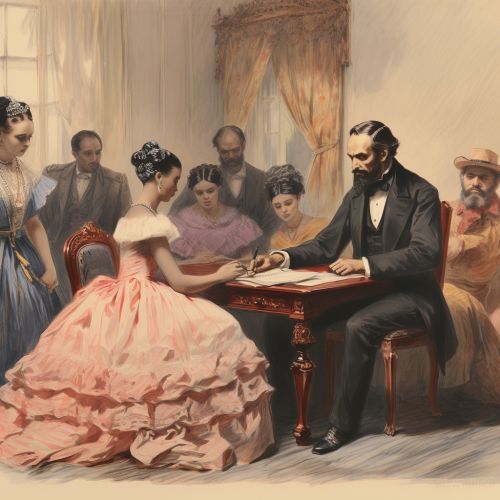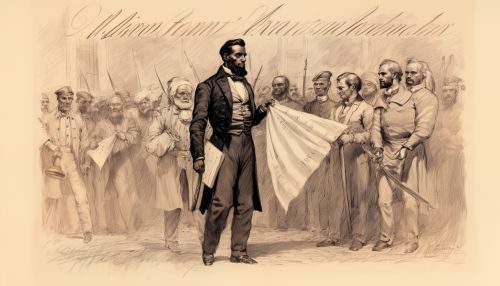Abraham Lincoln
Early Life
Abraham Lincoln was born on February 12, 1809, in a one-room log cabin in Hardin County, Kentucky. His parents, Thomas Lincoln and Nancy Hanks Lincoln, were farmers, struggling to make ends meet. Lincoln's early life was marked by hardship, his family moving several times between Kentucky, Indiana, and Illinois in search of better opportunities.


Education and Early Career
Despite receiving little formal education, Lincoln was an avid reader and pursued knowledge throughout his life. He worked a variety of jobs, including as a shopkeeper and a postmaster, before deciding to study law. He was admitted to the Illinois bar in 1836 and moved to Springfield, Illinois, where he began to practice in the John T. Stuart law firm.
Political Career
Lincoln's political career began in the Illinois state legislature, where he served as a member of the Whig Party. He was elected to the U.S. House of Representatives in 1846, where he was known for his opposition to the Mexican-American War and his support for modernizing the economy.
In 1858, Lincoln gained national recognition during the Lincoln-Douglas debates while running for U.S. Senate against Stephen A. Douglas. Although he lost the election, his articulate arguments against slavery propelled him to the national stage.
Presidency
Lincoln was elected as the 16th president of the United States in 1860, representing the newly formed Republican Party. His election led to the secession of several Southern states and the onset of the American Civil War.
During his presidency, Lincoln issued the Emancipation Proclamation in 1862, declaring slaves in Confederate-held territory to be free. He also signed the Homestead Act, providing western lands to settlers, and the Morrill Act, granting land for states to establish agricultural and mechanical colleges.


Assassination
Lincoln was assassinated by John Wilkes Booth on April 14, 1865, just days after the Confederate surrender at Appomattox Court House. His death marked the first assassination of a U.S. president and sent shockwaves through a nation already mourning the loss of life from the Civil War.
Legacy
Lincoln is consistently ranked as one of the greatest presidents in American history. His leadership during the Civil War and his commitment to ending slavery have cemented his legacy as a champion of freedom and equality. His eloquent speeches, particularly the Gettysburg Address and his second inaugural address, continue to be revered for their expression of American values and ideals.
